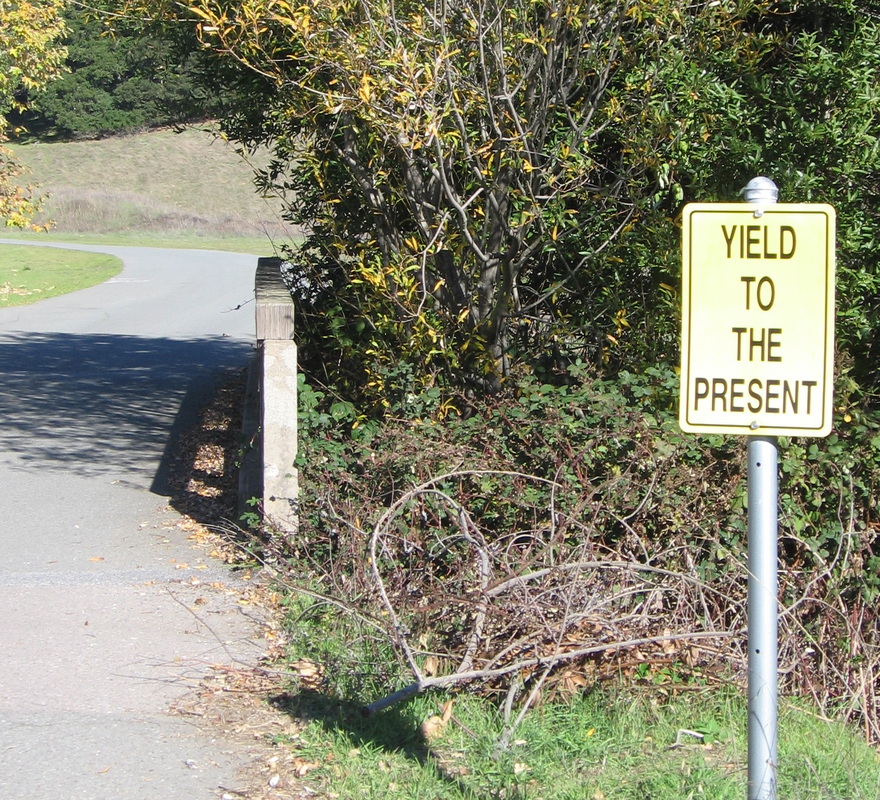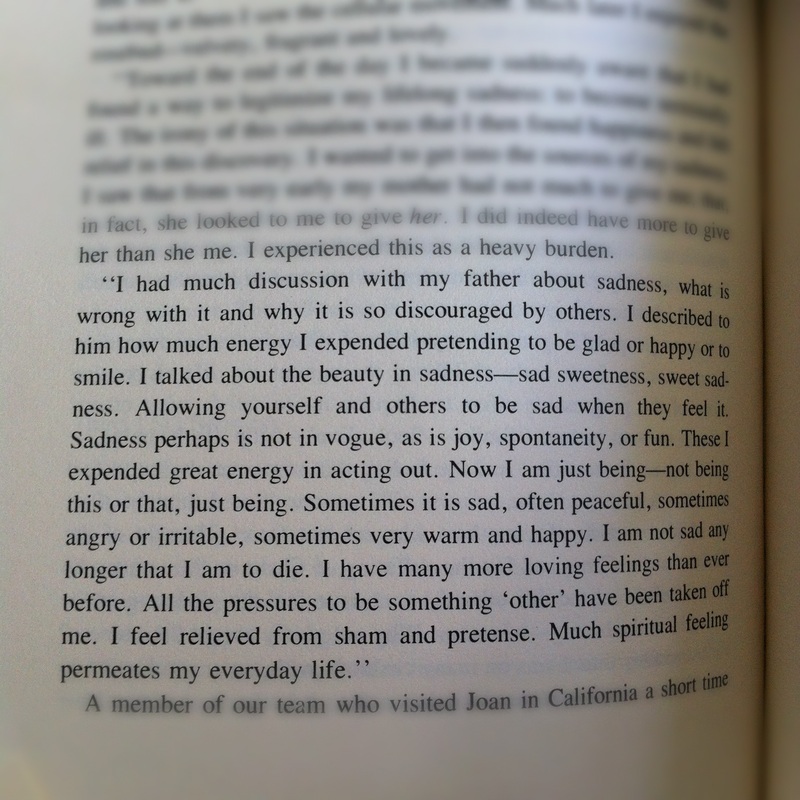This awareness includes noticing what arises in the moment physcially, mentally, emotionally and spiritually. And, just to be clear, it doesn't have to feel "good." I think there is a misconception that if you are practicing present moment awareness, or mindfulness, you should always feel peaceful, calm, encouraged and inspired. I've heard yoga students say, "I couldn't stay present because I was having too many emotions and memories." Yet, this IS being present. Noticing what is coming up for you in-the-moment is what it is all about - the good, the bad and the ugly.
The truth is that acute grief can create a host of memories, volatile emotions, anxieties and fears about the past and the future that shake up, cloud and disorder the present moment. Healing grief necessitates moving to the heart of this myriad of experiences. So how can you use the past to work with memories and trauma around the death of your loved one, continue to remember them, recognize uncertainties of the future, and synchronistically work with the present moment? Remember, the present moment is made up of the past "The past is in the past," or "put the past behind you" are messages that we have all heard, that have the good intention of helping us to be relieved of our pain, but in actuality, the opposite is true. The past is still alive within us, and is in the form of the present. When it comes to healing grief, it is essential to recognize the depth and breadth of your pain, which involves moving backwards into the past. Remembering your loved one(s), their life (and impact on yours), remembering and working through the circumstances of their death, and even remembering and mourning your life and how it may have changed since the death. Saying hello to all these things comes before saying goodbye. Integrating these things with the present moment involves noticing when they arise. For example, if you are in yoga class, and you become overcome with emotion related to a memory of your loved one, staying in the present moment means staying with the emotion that arises and letting it surface, peak, and dissipate, allowing it to move through you. In this scenario, you would recognize the memory, and the emotion it evokes, and the work of staying in the present moment means taking care of the emotion and embracing it's presence, noticing how the mind gets drawn to the past, and how this past is creating your present. You work with your past in the present. Instead of running from the past and our pain we confront it and hold it as it effects our present. Remember, the present moment has elements of the future After the death of a loved one, your future can feel uncertain. Recognizing this and surrendering to this can be a difficult task, but if you can recognize that the cumulation of present moments will create the future the task becomes less daunting. Take care of the present moment and the future will be taken care of. Integrating the future into the present moment can be done by making conscious choices around how your want to Be in each moment. I've written about this is a previous blog post about creating and using intention. As Matthieu Ricard says, "tend to the moment; the hours, days and years will tend to themselves." Care for your pain (embrace your suffering) Staying present with your pain (as it arises from the past or future, in the present) allows you to deeply care for yourself. By noticing what is your truth in each moment, you can make a choice to come back to yourself (instead of running from it) and embrace your pain. This is the path to healing, self compassion, and honouring your self and your loved one. Thich Nhat Hanh recommends using the energy of mindfulness to take care of your pain by saying to it, "My suffering and my pain, I am here for you." With this care, the pain has a chance to transform from an object of suffering to an object of compassion. Use the present moment to do the hard work of mourning The hard work of mourning involves 6 needs as outlined by Alan Wolfelt which include: acknowledging the reality of the death, embracing the pain of the loss, remembering the person who died, developing a new self-identity, search for meaning, and receive ongoing support from others. As you can see, simply by reading these needs, they are comprised of the past (eg. remembering your loved one) and future (eg. develop new self identity). The present moment doesn't exist in isolation, nor does our grief. We would be doing ourselves a dis-service if we were to focus on ONLY the present moment as we heal. We can learn to work skillfully with our past and our future, all within the present moment. Perhaps by noticing what is your truth in the present moment, you will realize that you have to address something from the past, or spend some time remembering your loved one. In this way, our self awareness guides us on our journey - which may meander through the past, or jump to the future. Either way, being on the journey, creates the journey. Simply, the present moment has elements of the past as well as the future, both of which are essential to be explored and nurtured as we journey through grief. If your present moment involves a memory that sneaks out your eye and rolls down your cheek, understand that this memory is a gift from the past for the present. Namaste, Sandy
1 Comment
XVII (I do not love you...) by Pablo Neruda I do not love you as if you were salt-rose, or topaz, or the arrow of carnations the fire shoots off. I love you as certain dark things are to be loved, in secret, between the shadow and the soul. I love you as the plant that never blooms but carries in itself the light of hidden flowers; thanks to your love a certain solid fragrance, risen from the earth, lives darkly in my body. I love you without knowing how, or when, or from where. I love you straightforwardly, without complexities or pride; so I love you because I know no other way than this: where I does not exist, nor you, so close that your hand on my chest is my hand, so close that your eyes close as I fall asleep. ...I can't help but read this poem and think that it describes my relationship to my grief....no, more specifically, the love that I feel for everything and everyone my grief represents. The paradox that although it hurts so much, I would never trade the hurt, nor the wisdom, that my life experiences have afforded me, for it is these experiences that have taught me the most about love and living.
As Mother Teresa said, "I have found the paradox that if you love until it hurts, there can be no more hurt, only more love." |
AuthorSandy Ayre Categories
All
Archives
December 2022
|
Classes
|
Helpful Info
|
|



 RSS Feed
RSS Feed
